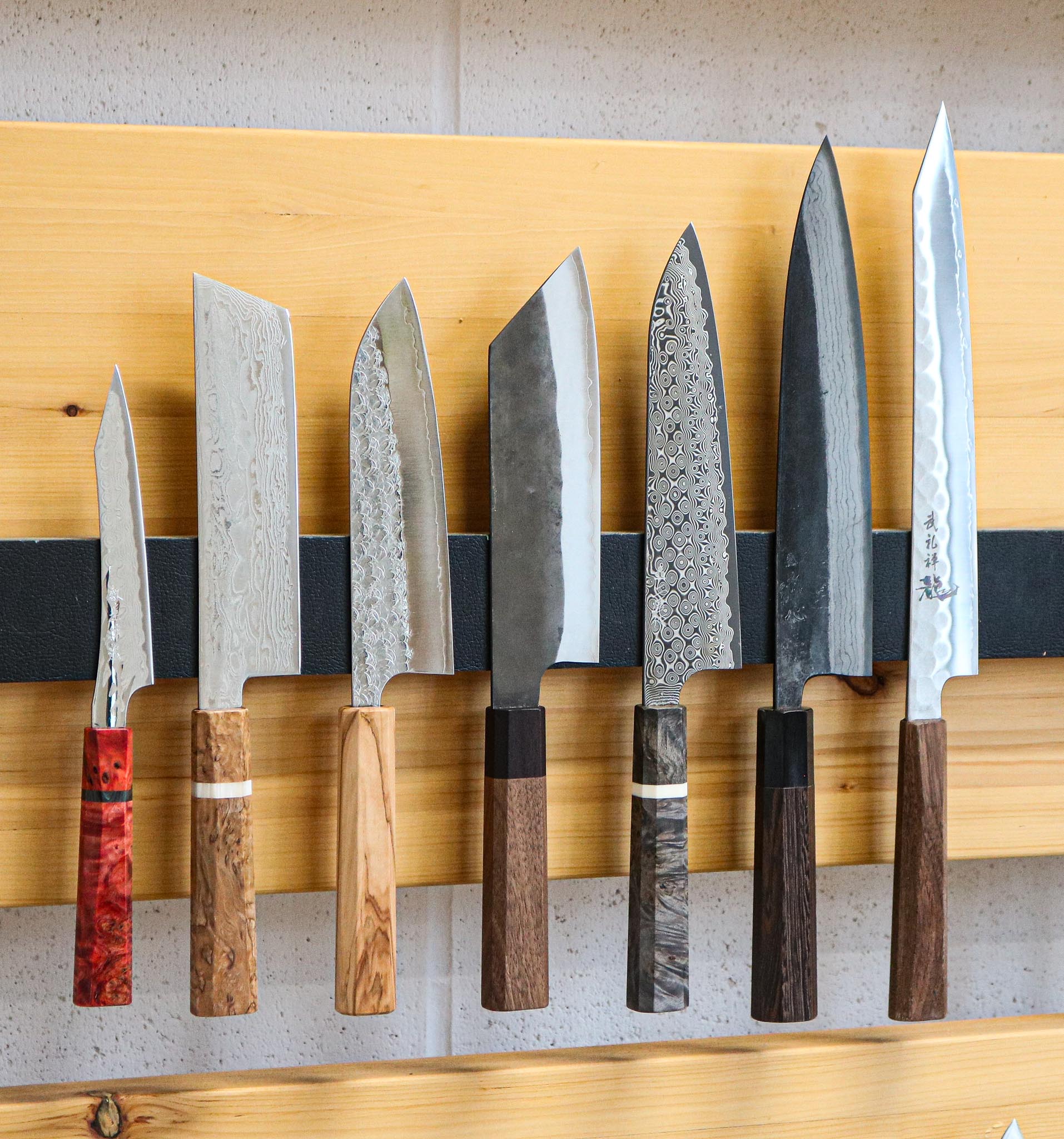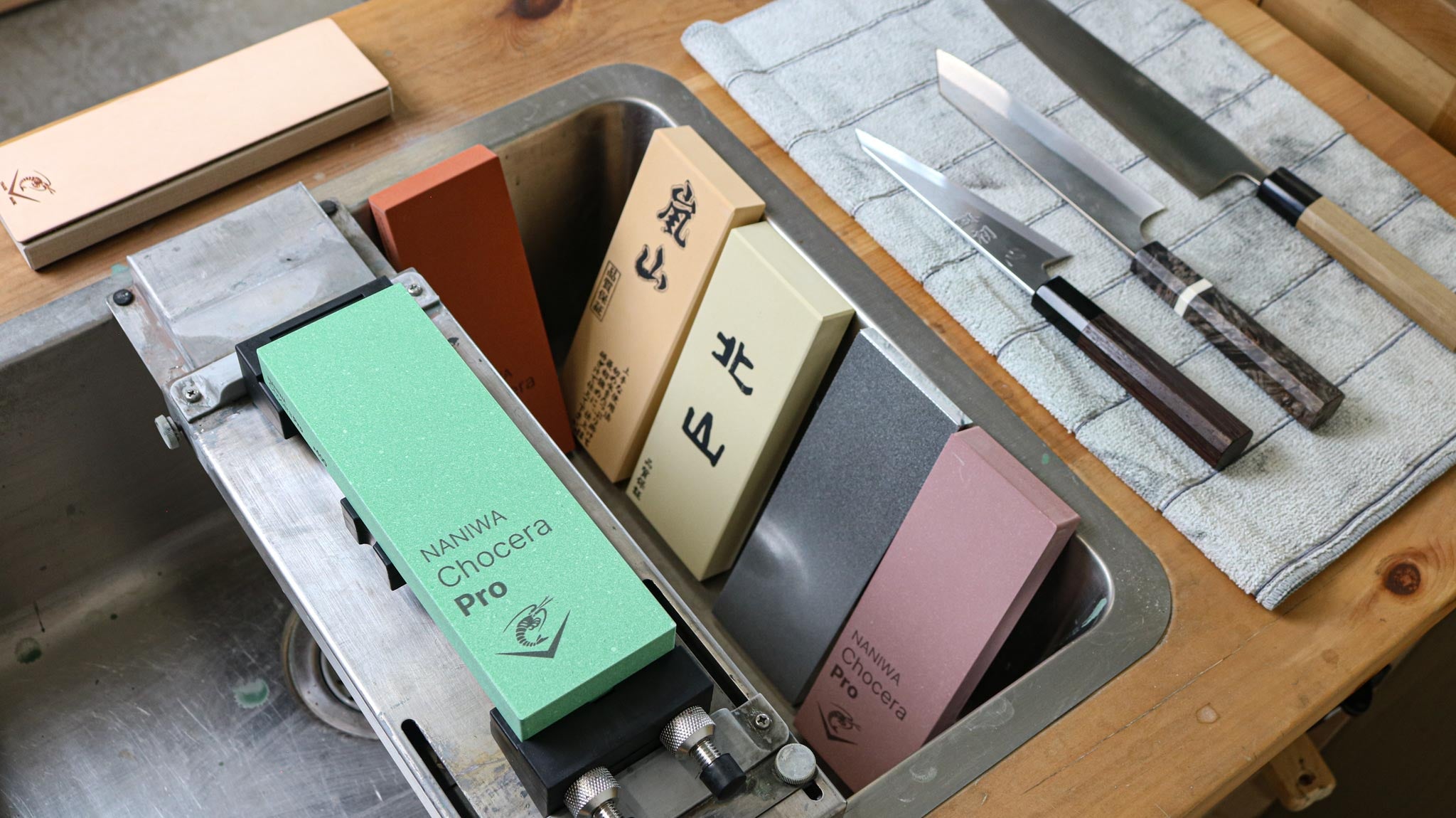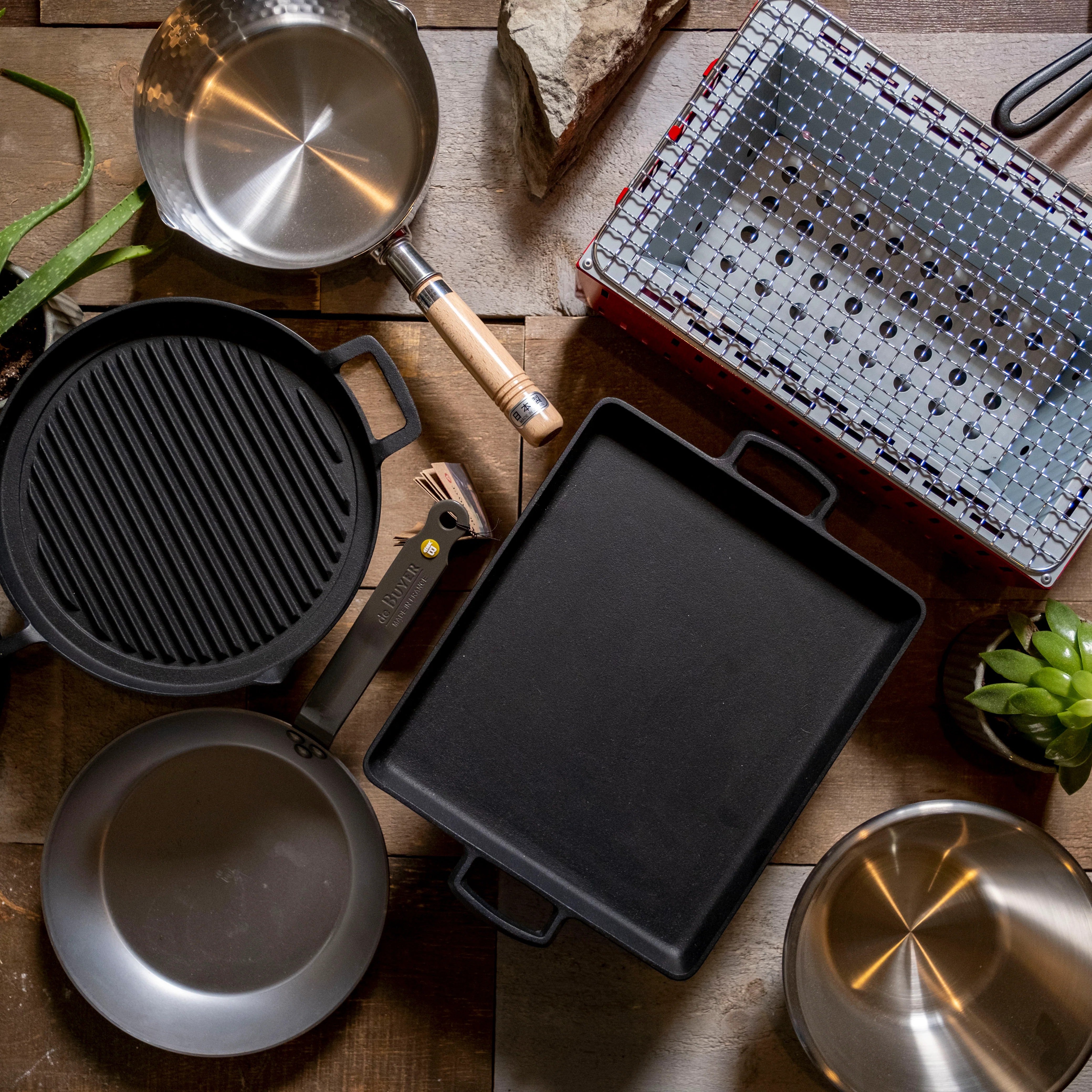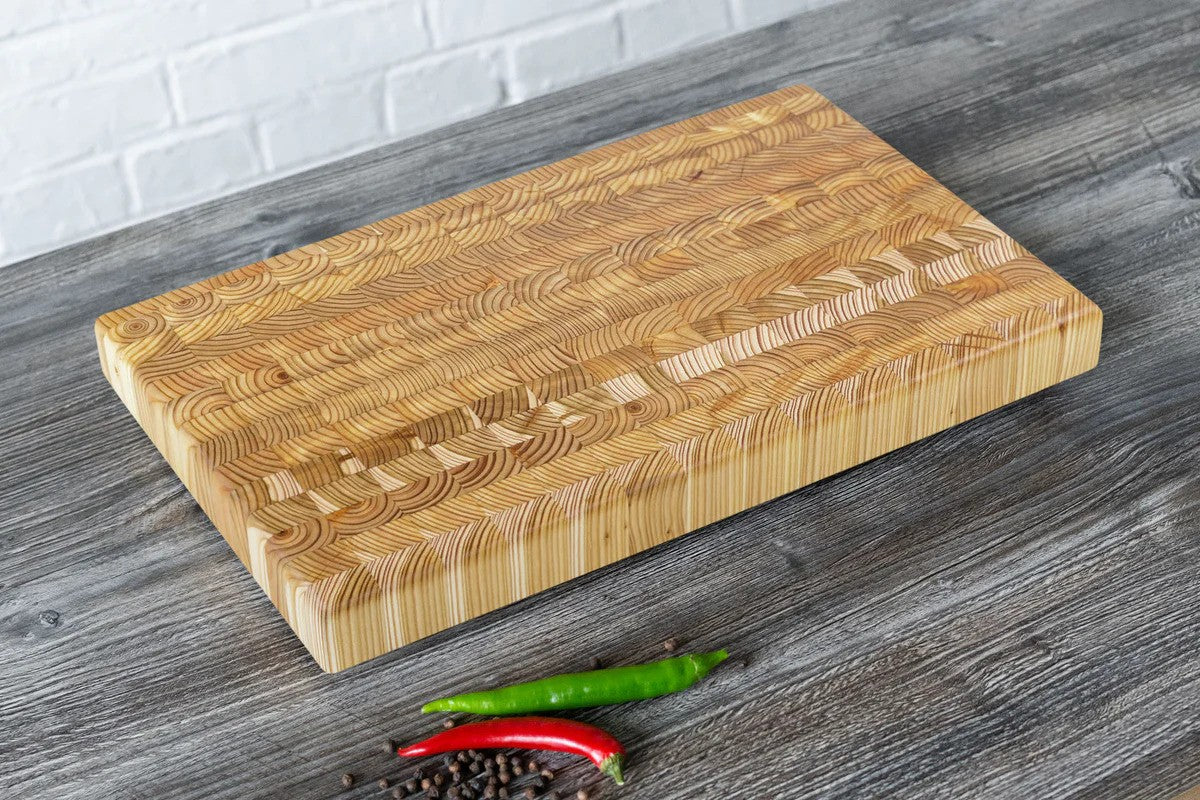Menu

Yoshimi Kato Spotlight
Yoshimi Kato, a third generation blacksmith, works out of the Takefu Knife Village in Echizen, Japan. You might not know it looking at one of his many beautiful lines of knives, but this career path came later in life for Kato-san, who was successful as a project manager for a construction company before ever stepping foot in the cockpit of a spring hammer.

After he married, his father-in-law was none other than Hiroshi Kato, who is one of the most respected blacksmiths in Japan and a founding member of the Takefu Knife Village. Stepping away from his project manager job in 2012, he started his apprenticeship at the family business alongside other members of the Takefu Knife Village, Yu and Makoto Kurosaki.

Traditionally, a smith will apprentice for 10-15 years, but Kato-san took over the reigns from Hiroshi Kato in 2017. Only 5 short years after his obsession with metallurgy, annealing, quenching and tempering has made him a force to be reckoned with.

Its hard to pick a most popular line from Kato-sans knives because we're rarely able to keep them in stock. However our favorite would have to be a tie between his R2(SG2) Tsuchime line and his R2(SG2) Black Damascus line.

The R2(SG2) Tsuchime line has great thin-behind-the-edge hollow grinds and a stiff spines, with fantastic heat treats (which can be said about all of his knives, as this is what Kato-san really nerds out about) But what really catches my eye on these knives is the tsuchime finish on them. I don't know exactly what it is about these knives but when I close my eyes and picture a tsuchime, THIS is exactly what I see. He really beats the crap out of these knives giving them deep hammer marks, but with enough control to not go so deep as to hinder the life of the knife when it comes time to thin and move up the shinogi line.

The R2(SG2) Black Damascus line is as high performing as it is beautiful, featuring a thinner spine and a gentle convex grind. These knives definitely fall into the laser category and are thin and light overall, which allows a 240mm gyuto to disappear in your hand, effortlessly nimble and fast. They require a more delicate touch and control from the user, but they will be rewarded for this attention to detail when these knives fall through carrots and other harder ingredients like a hot knife through butter.


After he married, his father-in-law was none other than Hiroshi Kato, who is one of the most respected blacksmiths in Japan and a founding member of the Takefu Knife Village. Stepping away from his project manager job in 2012, he started his apprenticeship at the family business alongside other members of the Takefu Knife Village, Yu and Makoto Kurosaki.

Traditionally, a smith will apprentice for 10-15 years, but Kato-san took over the reigns from Hiroshi Kato in 2017. Only 5 short years after his obsession with metallurgy, annealing, quenching and tempering has made him a force to be reckoned with.

Its hard to pick a most popular line from Kato-sans knives because we're rarely able to keep them in stock. However our favorite would have to be a tie between his R2(SG2) Tsuchime line and his R2(SG2) Black Damascus line.

The R2(SG2) Tsuchime line has great thin-behind-the-edge hollow grinds and a stiff spines, with fantastic heat treats (which can be said about all of his knives, as this is what Kato-san really nerds out about) But what really catches my eye on these knives is the tsuchime finish on them. I don't know exactly what it is about these knives but when I close my eyes and picture a tsuchime, THIS is exactly what I see. He really beats the crap out of these knives giving them deep hammer marks, but with enough control to not go so deep as to hinder the life of the knife when it comes time to thin and move up the shinogi line.

The R2(SG2) Black Damascus line is as high performing as it is beautiful, featuring a thinner spine and a gentle convex grind. These knives definitely fall into the laser category and are thin and light overall, which allows a 240mm gyuto to disappear in your hand, effortlessly nimble and fast. They require a more delicate touch and control from the user, but they will be rewarded for this attention to detail when these knives fall through carrots and other harder ingredients like a hot knife through butter.

- Choosing a selection results in a full page refresh.






